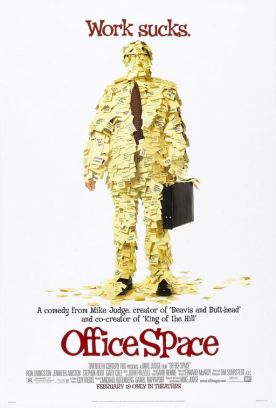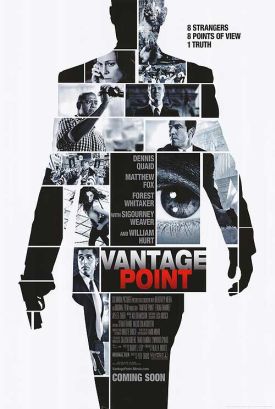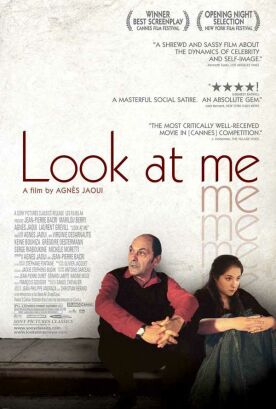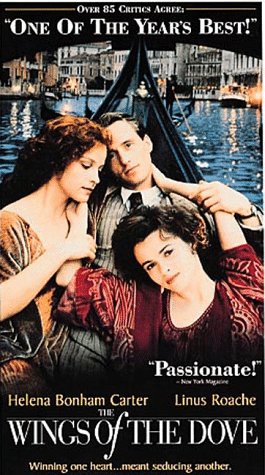Office Space
Office Space, written and directed by the great creator of “Beavis and Butthead,” Mike Judge, is really two movies jammed into one. Up until the very funny moment at which its hero, Peter Gibbons (Ron Livingston) tells the Two Bobs (John C. McGinley and Paul Wilson) — efficiency experts brought in to recommend to his company, Initech, which employees are to be downsized—what he really does at the office all day, it is an excellent picture about a favorite subject these days: working for the American corporation of the 1990s. At that point, however, the excellent Mr Judge’s comic inspiration flags and the rest of the picture is a tedious heist caper which tries and fails to make a comic virtue out of the fact that its premiss (having computers deposit all fractions of cents in the cybercriminal’s bank account) was used in Superman III.
Along the way, however, there are so many good jokes, that the movie rises to the level of being “worth seeing” — as the best of Woody Allen does — just for the laughs. These jokes include what we should call the structural joke of having Peter converted from a miserable angst-ridden company man, terrified of losing his job, into a fantasy hero who defies the ghastly system and his moronic boss (nicely played by Gary Cole) after having been put into a hypnotic trance by a hypnotherapist who then promptly dies without bringing him out of it. They also include the brilliantly comic character of Milton (Stephen Root), who is so completely the company man that the company cannot get rid of him, even by firing him, and yet who defies the system with a rival version of its own insanity—by insisting on keeping his Swingline stapler, for example, after the company decrees a switch to Bostik.
Some of the best jokes come from Peter’s neighbor, Lawrence (Diedrich Bader), an emphatically down-to-earth demolition worker. A disgruntled Peter asks Lawrence if anyone at his job ever says chirpily to you when you are out of sorts: “Sounds like someone has a case of the Mondays.”
“No,” Lawrence answers. “Anyone who said that would get his ass kicked.” Already we know that this is more the job for Peter than occupying a cubicle at Initech. Peter’s friend, Not-that Michael Bolton (David Herman) remembers a high school guidance counselor who used to ask those who came to him for advice what they would do if they had a million dollars, the answer being what they should then seek to do with their lives. For Peter, however, it doesn’t really work because what he would do if he had a million dollars is nothing at all. This too puts him more in tune with Lawrence who, when the question of what he would do with a million dollars is put to him, says he would get himself “two chicks at the same time.”
Also very funny is the enforced cheerfulness endured by Peter’s love interest, Joanna (Jennifer Anniston), as a waitress at an awful, TGI Friday’s style restaurant. Joanna only has 15 “pieces of flair” — which are buttons with arch slogans on them chosen at random from a novelty store shelf and worn on her broad suspenders. Fifteen pieces of flair is the bare minimum for working at “Chotchkies,” and the insufferably keen Brian (Todd Duffey) has 37. When her moronic boss wants to know why she can’t be more like Brian, she asks him why they don’t just make 37 the minimum. “Don’t you want to express yourself?” the boss replies reproachfully. Like Peter, she must establish an identity by an act of defiance against the phoniness of the system she is afraid she can’t do without.
What the film might have been is shown in the brief period between the hypnotherapy session and the plotting of the heist when Peter declares his independence. Having been asked to come into work on the weekend, he simply ignores the boss’s phone calls. “I don’t like my job. I don’t think I’m going to go anymore,” he tells his friends nonchalantly. And “I don’t think I’d like another job” either. At his interview with the Two Bobs he tells them: “The thing is, Bob, it’s not that I’m lazy. It’s just that I don’t care.” When they say “I see you’ve been missing a lot of work lately,” Peter replies, “I wouldn’t say I’ve been missing it.” But when he tells them of how little work he does, instead of firing him they promote him. It is a mere wish-fulfilment fantasy but one to which every employee’s bosom will return an echo.
Discover more from James Bowman
Subscribe to get the latest posts to your email.






